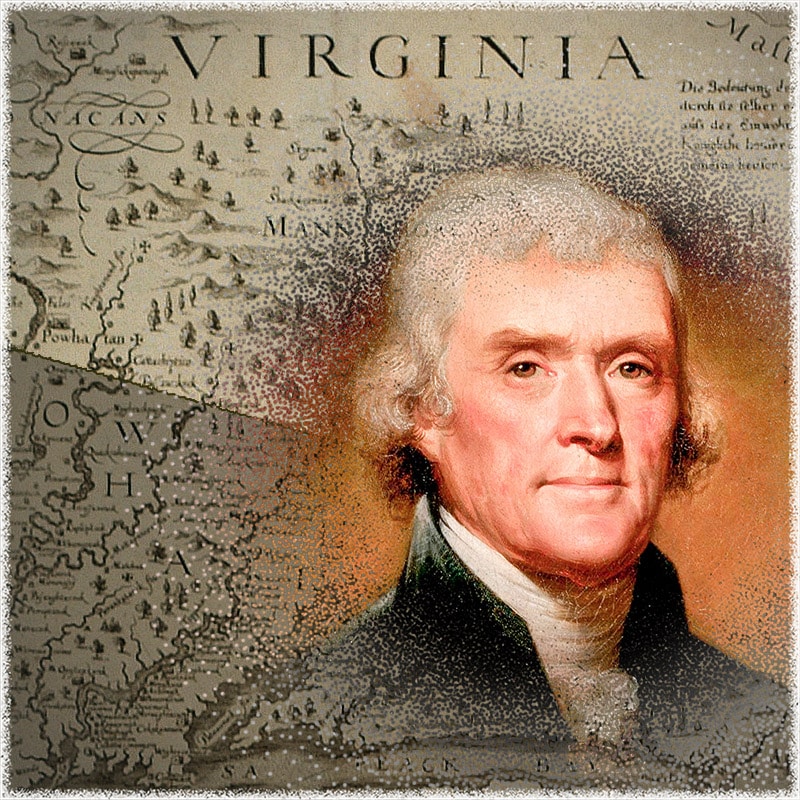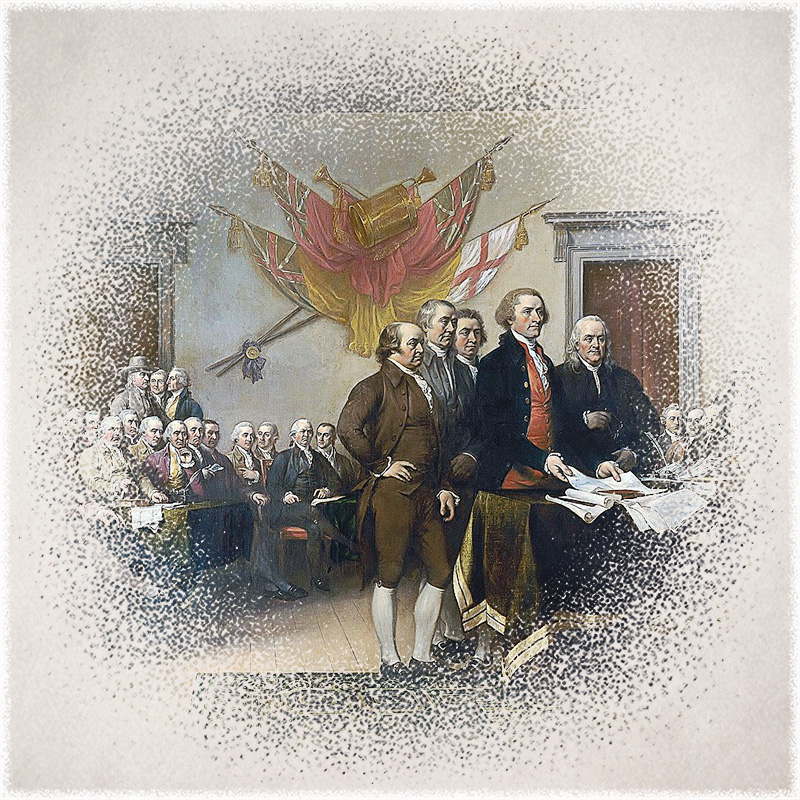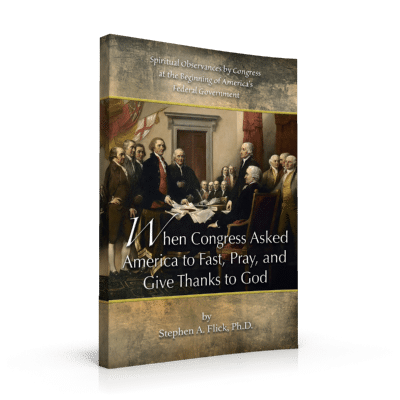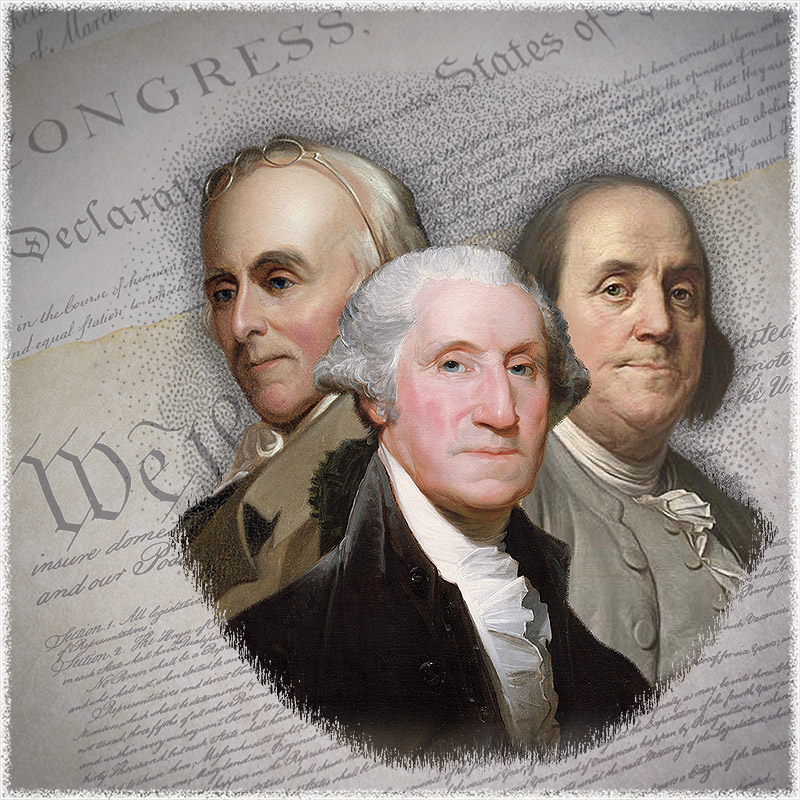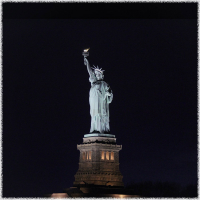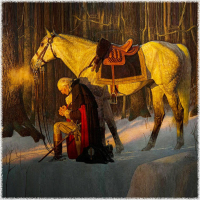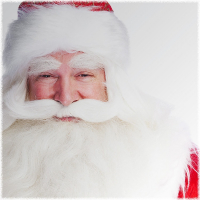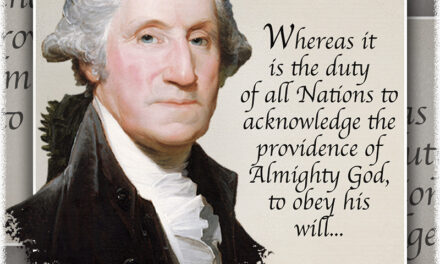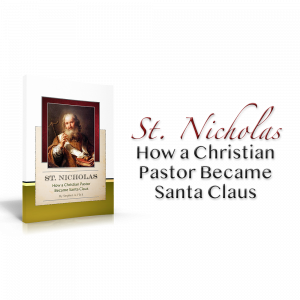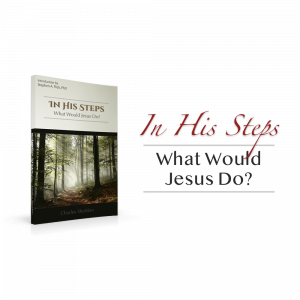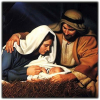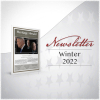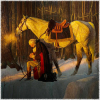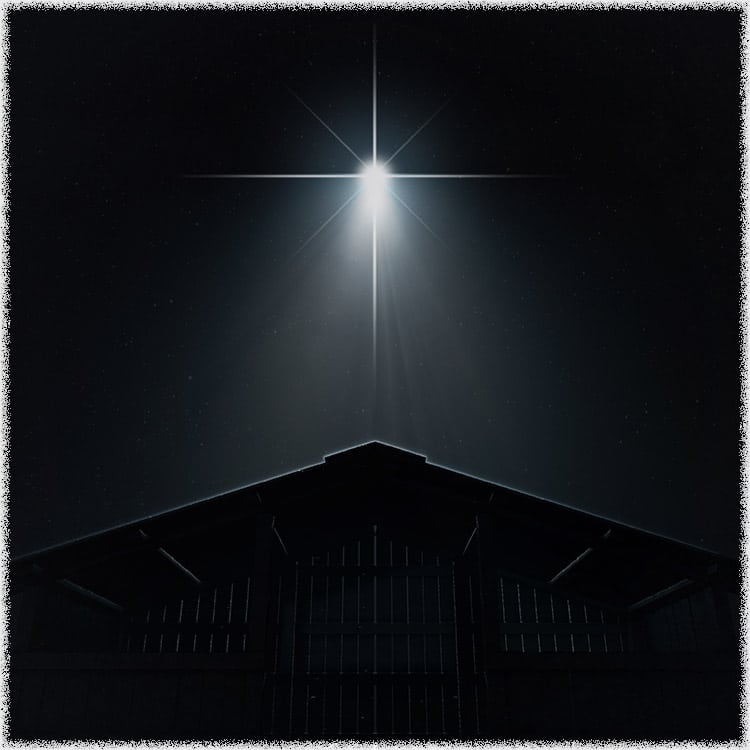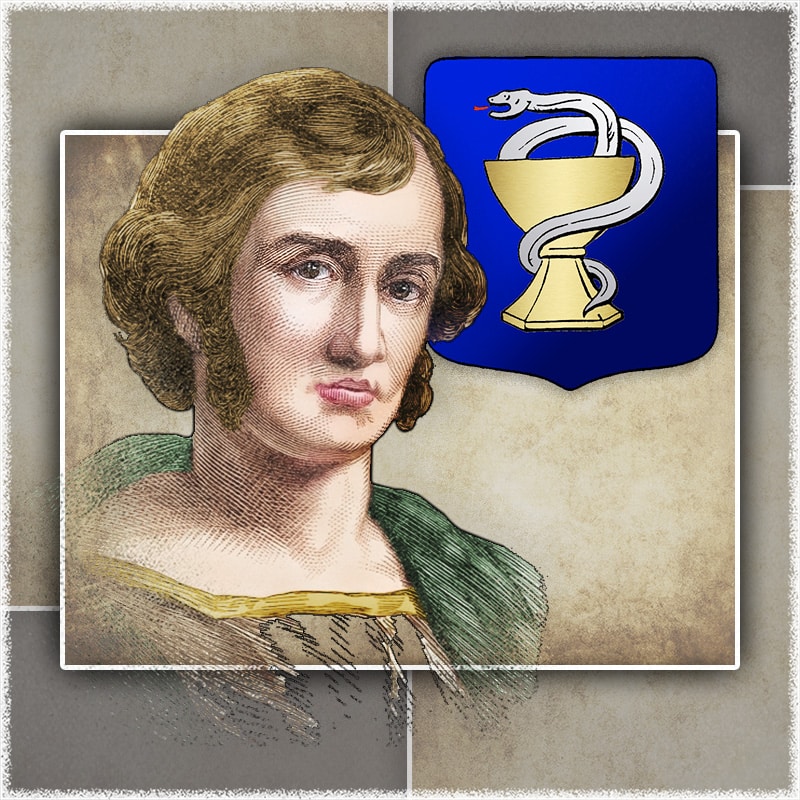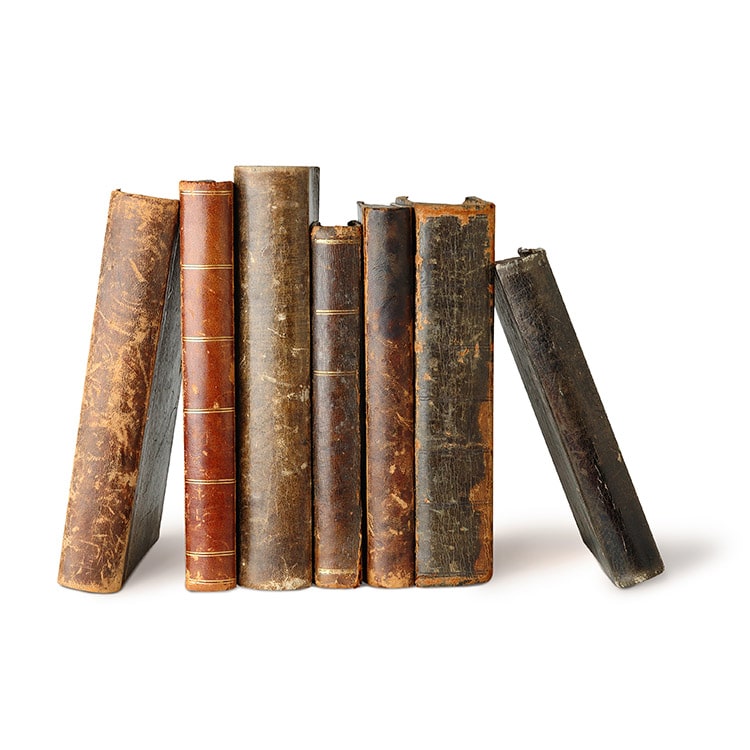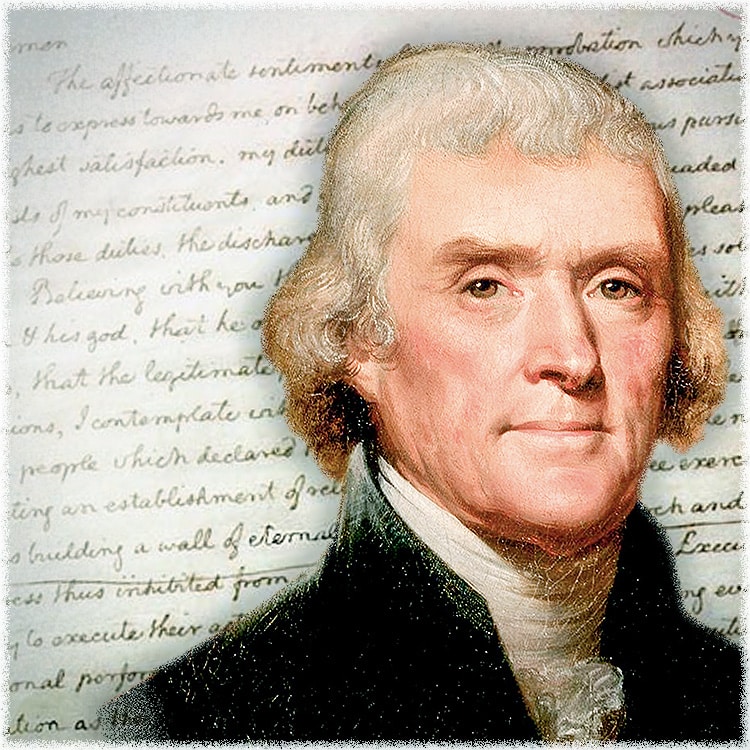On October 20, 1779, the Continental Congress asked the states to set “apart the second Thursday in December next, as a day of general thanksgiving.”[1] This request issued by Congress to the thirteen American states was the eighth spiritual proclamation of sixteen calling the states to fast, pray and give thanks to God. Beginning in 1775, the Continental Congress issued nearly two spiritual proclamations a year until 1783—throughout the years of the American Revolution. In the spring, usually a proclamation was issued by Congress asking the states to fast and pray. In the fall, proclamations were issued requesting the states to pray and give thanks. Congress issued the proclamations to the states, and—as demonstrated by Thomas Jefferson, governor of Virginia in 1779—respective states were asked to observe the proclamations by requesting that their citizens cease from normal labor on the designated day.
The subject addressed in this article is discussed at greater length in When Congress Asked America to Fast, Pray, and Give Thanks to God. Christian Heritage Fellowship would be honored to work with individuals, businesses, churches, institutions, or organizations to help communicate the truth concerning the positive influence of the Christian faith by providing bulk pricing: Please contact us here... To purchase a limited quantity of this publication, please click: Purchase here...
Thanksgiving and Prayer Proclamation
On November 11, 1779, Governor Thomas Jefferson complied with the request from Congress and issued a proclamation to the state of Virginia, calling for a day of thanksgiving and prayer for December 9, 1779—the date established by Congress. The proclamation read…
Proclamation Appointing a Day of Thanksgiving and Prayer
Whereas the Honorable the General Congress, impressed with a grateful sense of the goodness of Almighty God, in blessing the greater part of this extensive continent with plentiful harvests, crowning our arms with repeated successes, conducting us hitherto safely through the perils with which we have been encompassed and manifesting in multiplied instances his divine care of these infant states, hath thought proper by their act of the 20th day of October last, to recommend to the several states that Thursday the 9th of December next be appointed a day of public and solemn thanksgiving and prayer, which act is in these words, to wit.
“Whereas it becomes us humbly to approach the throne of Almighty God, with gratitude and praise, for the wonders which his goodness has wrought in conducting our forefathers to this western world; for his protection to them and to their posterity, amidst difficulties and dangers; for raising us their children from deep distress, to be numbered among the nations of the earth; and for arming the hands of just and mighty Princes in our deliverance; and especially for that he hath been pleased to grant us the enjoyment of health and so to order the revolving seasons, that the earth hath produced her increase in abundance, blessing the labors of the husbandman, and spreading plenty through the land; that he hath prospered our arms and those of our ally, been a shield to our troops in the hour of danger, pointed their swords to victory, and led them in triumph over the bulwarks of the foe; that he hath gone with those who went out into the wilderness against the savage tribes; that he hath stayed the hand of the spoiler, and turned back his meditated destruction; that he hath prospered our commerce, and given success to those who sought the enemy on the face of the deep; and above all, that he hath diffused the glorious light of the gospel, whereby, through the merits of our gracious Redeemer, we may become the heirs of his eternal glory. Therefore,
Resolved, that it be recommended to the several states to appoint THURSDAY the 9th of December next, to be a day of public and solemn THANKSGIVING to Almighty God, for his mercies, and of PRAYER, for the continuance of his favor and protection to these United States; to beseech him that he would be graciously pleased to influence our public Councils, and bless them with wisdom from on high, with unanimity, firmness and success; that he would go forth with our hosts and crown our arms with victory; that he would grant to his church, the plentiful effusions of divine grace, and pour out his holy spirit on all Ministers of the gospel; that he would bless and prosper the means of education, and spread the light of Christian knowledge through the remotest corners of the earth; that he would smile upon the labors of his people, and cause the earth to bring forth her fruits in abundance, that we may with gratitude and gladness enjoy them; that he would take into his holy protection, our illustrious ally, give him victory over his enemies, and render him finally great, as the father of his people, and the protector of the rights of mankind; that he would graciously be pleased to turn the hearts of our enemies, and to dispense the blessings of peace to contending nations.
That he would in mercy look down upon us, pardon all our sins, and receive us into his favor; and finally, that he would establish the independence of these United States upon the basis of religion and virtue, and support and protect them in the enjoyment of peace, liberty and safety.”
I do therefore by authority from the General Assembly issue this my proclamation, hereby appointing Thursday the 9th day of December next, a day of public and solemn thanksgiving and prayer to Almighty God, earnestly recommending to all the good people of this commonwealth, to set apart the said day for those purposes, and to the several Ministers of religion to meet their respective societies thereon, to assist them in their prayers, edify them with their discourses, and generally to perform the sacred duties of their function, proper for the occasion.
Given under my hand and the seal of the commonwealth, at Williamsburg, this 11th day of November, in the year of our Lord, 1779, and in the fourth of the commonwealth.
THOMAS JEFFERSON[2]
The overwhelming majority of America’s Founding Fathers were deeply committed Christians. In a statement written in October 1776—three months after writing the Declaration of Independence—Thomas Jefferson affirmed Christian orthodoxy.[3] In fact, he helped to start a Reformed church.[4] Six years after penning the Declaration, on September 6, 1782, his wife, Martha Wayles Skelton Jefferson, passed away. Mr. Jefferson took his wife’s death very, very hard; this experience appears to have caused him to swerve from his orthodox faith, yet as late as January 9, 1816, he claimed, “…I am a real Christian…”[5]
America’s Founding Fathers believed that without the virtues of the Gospel of Jesus Christ, America could not have peace. The general understanding of America’s Founding Fathers concerning the importance of Christianity to civil government is summarized in the 1780 constitution of Massachusetts—which was written by John Adams:
As the happiness of a people and the good order and preservation of civil government essentially depend upon piety, religion, and morality, and as these cannot be generally discussed through a community but by the institution of the public worship of God and of the public instructions in piety, religion, and morality.[6]
Our Founding Fathers believed that the Gospel of Jesus Christ could solve social ill. May God gives us the grace to recognize what our Founders advocated.
America deserves to know its true heritage.
Please contribute today!
[1] Journals of the Continental Congress, 1774-1789, 34 vols. (Washington, D.C.: Government Printing Office, 1904-1937), 15:1191-1193.
[2] Orthography updated. Thomas Jefferson, "Proclamation Appointing a Day of Thanksgiving and Prayer, 11 November 1779," National Archives: Founders Online, October 7, 2020; https://founders.archives.gov/documents/Jefferson/01-03-02-0187.
[3] Stephen A. Flick, America’s Founding Fathers and the Bible: A Select Study of America’s Christian Origin (Clinton, Tennessee: Christian Heritage Press, 2018), 72-73.
[4] Mark A. Beliles and Jerry Newcombe, Doubting Thomas? The Religious Life and Legacy of Thomas Jefferson (New York: MJ, 2015), 22.
[5] Thomas Jefferson, The Writings of Thomas Jefferson, ed. Andrew Adgate Lipscomb et al., 20 vols. (Washington, DC: Thomas Jefferson Memorial Aflociation of the United States, 1903-1907), 14:385.
[6] "Constitution of Massachusetts 1780," Document: Who We Are, The Story of America’s Constitution, October 7, 2020; http://www.nhinet.org/ccs/docs/ma-1780.htm.

